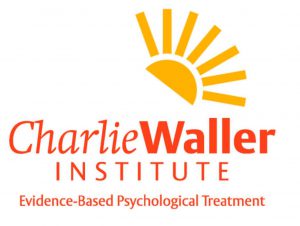This course provides the training needed to qualify as an Education Mental Health Practitioner (EMHP).
EMHPs assess and deliver low-intensity interventions for common mental health problems in children and young people such as low mood, anxiety and behavioural difficulties. They also support schools and colleges with initiatives aimed at promoting mental health and wellbeing and preventing mental health problems.
Employment is generally within the NHS or Local Authorities for the duration of training, plus potentially further employment post-qualification.
You will develop your skills with a mixture of role-play and skills practice teaching, as well as clinical work undertaken in schools and colleges.
What Can I Expect from the Course?
The course runs over the course of one calendar year, and consists of roughly 56 taught University days, 9 directed learning days, and 12.5 study days alongside a placement in a Mental Health Support Team.
The course consists of 6 compulsory modules:
- Fundamental Principles for Working with Children and Young People
- Engagement and Assessment of Common Mental Health Problems in Children and Young People
- Evidence-Based Low Intensity Interventions for Children and Young People
- Working, Assessing and Engaging in Education Settings
- Common Problems and Processes in Education Settings
- Interventions for Emerging Mental Health Difficulties in Education Settings
You will be taught through a variety of teaching methods including lectures, experiential skills, training workshops, and self-directed learning. You will apply and develop the skills you learn in your trainee role within a mental health service.
Across the course, trainees are expected to undertake 80 clinical contact hours with clients and receive 40 hours of supervision.
How is the Course Assessed?
The course is assessed through a combination of written and clinical assessments. Written assignments include a module test, reflective reports, live presentations and case reports. Clinical assessments include a role-play and assessment and intervention recordings with a client.
At the end of the course, students are expected to demonstrate their learning and development through a portfolio.
Entry Requirements
For information on entry requirements, please consult the job specification advertised on NHS jobs.
You do not necessarily need a degree to undertake this training. There are two main routes of entry for the training: graduate and postgraduate. Specific entry requirements for each route will be detailed on the NHS Jobs advertisement. In general, the graduate route requires evidence of ability to study at Level 6 (e.g., previous successful study at Level 5 or successful part completion of an Honours degree – level 6, or completion of a pre-entry essay). The postgraduate route requires previous successful completion of an Honours degree graded 2.2 or above.
Funding
The training programme is fully funded by the NHS and trainees will receive a salary equivalent to a full-time NHS band 4 over the year. Shortlisted candidates will be informed of the agreed salary on offer of interview.
Careers
Successful completion of the programme will enable you to work as a qualified EMHP in a mental health service. A qualified EMHP salary is equivalent to NHS band 5 pay.
For further details, please visit the Health Careers EMHP role profile.
How to Apply?
The Charlie Waller Institute usually offers one intake per year starting in September. The number of places available per cohort is dependent on NHS service funding.
Potential candidates must apply through the job advertisement on NHS jobs. The University of Reading will review the application and a member of our team will be present on the interview panel.
Update July 2024- We are now registering interest for non-NHS funded places on this course. If you are interested in self-funding or being sponsored by your employer to attend this training, please email admissions-cwi@reading.ac.uk and the Admissions Tutor (email address in Further Information section below) for more details.
Criteria for this course are:
- Graduate Diploma (level 6 qualification) requires evidence of previous study up to level 5
- Postgraduate Diploma (level 7 qualification) requires previous study up to level 6
- Would expect previous experience working with CYPs/Parents within education settings
- Access to a LI Supervisor who has/or is attending a NHS WTE commissioned Supervision training programme (providing Clinical Skills Supervision as well as Case Management Supervision at regular intervals)
- Access to education establishments to complete whole school approach and 1:1 clinical element for the requirements of the course/role
- Access to appropriate low intensity suitable cases
Further information
For further information on this programme, please contact Jeevan Kang, Admissions Tutor for EMHP, at j.k.kang@reading.ac.uk.

